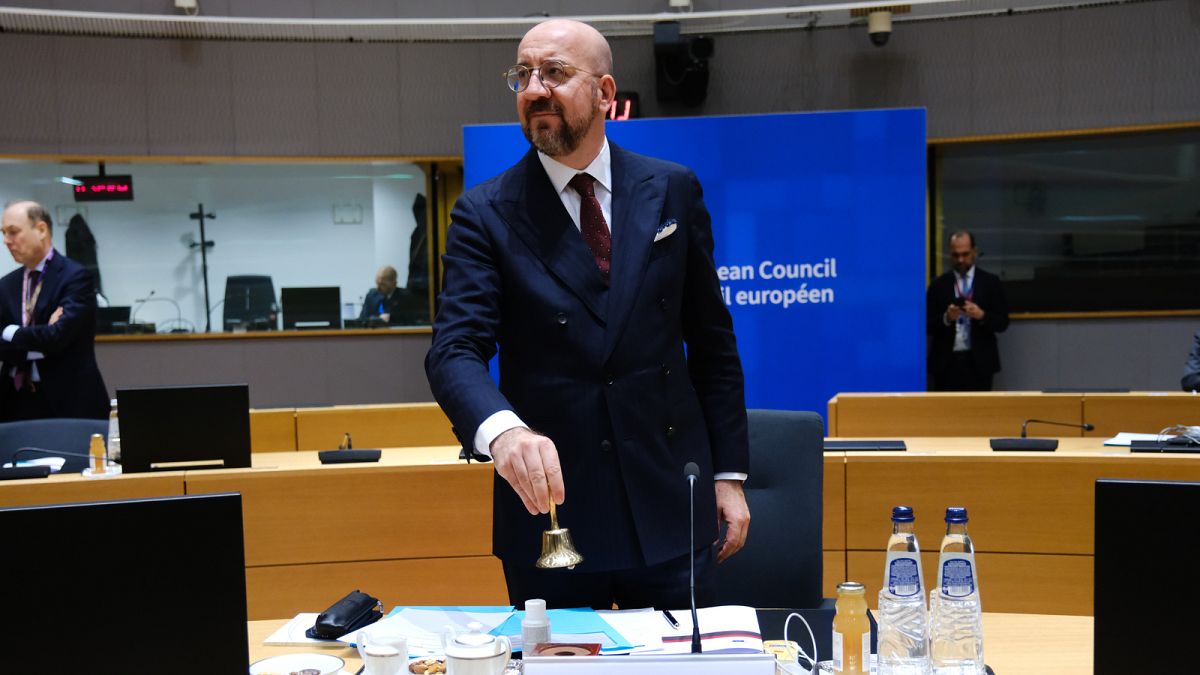EU leaders mull strengthening Lebanon ties in response to Middle East crisis
EU leaders have supported deeper engagement with Lebanon to help safeguard it from the repercussions of the crisis gripping the Middle East, Charles Michel has said. “We had an in-depth discussion on Lebanon,” the European Council President told reporters following a summit of EU leaders in Brussels late on Wednesday. “They have a lot of […]


EU leaders have supported deeper engagement with Lebanon to help safeguard it from the repercussions of the crisis gripping the Middle East, Charles Michel has said.
“We had an in-depth discussion on Lebanon,” the European Council President told reporters following a summit of EU leaders in Brussels late on Wednesday.
“They have a lot of Syrian refugees in Lebanon and we all understand it’s our responsibility to engage with this country (…) including the Lebanese armed forces,” Michel explained, adding that future cooperation with Lebanon could include steps to manage migration flows into Europe.
In the summit’s conclusions, the 27 leaders say they stand ready to “work with all partners to avoid further escalation of tensions in the region, notably in Lebanon.”
It comes after tensions between Iran and Israel reached a dangerous high over the weekend when Tehran launched an unprecedented barrage of drones and missiles towards Israeli territory.
A deepening economic crisis and fragile government makes Lebanon particularly vulnerable to the instability gripping the region. The presence of the Iranian-backed militant group Hezbollah – which has continuously exchanged fire across the border with Israel since the outbreak of the war with Hamas, and which took part in Tehran’s aerial attack last weekend – also risks dragging the country into the deepening conflict.
The country is also home to some 210,000 Palestinian and 1.5 million Syrian refugees, meaning further instability could unleash a wave of migrants towards Europe.
Last week, Cyprus announced it would halt the processing of asylum applications due to a surge in arrivals of Syrian refugees transiting through Lebanon and attempting to reach the island, which lies just 260 km off the Lebanese coast in the Mediterranean sea.
Speaking ahead of the conference, Cypriot President Nikos Christodoulides announced he and Commission President von der Leyen would travel to Lebanon in early May to address a range of issues, including migration.
Christodoulides also said he would encourage other EU leaders to consider reassessing the so-called “safe areas” within Syria in order to facilitate the return of migrants and refugees.
Michel, however, refrained from confirming whether other leaders had backed the proposal. “We need to engage with Lebanon, that’s very clear. Migration is only one aspect,” Michel said.
“We try to engage with third countries to develop partnerships on migration, but not only on migration,” he added.
Italian Prime Minister Giorgia Meloni was among the leaders that called for an “assessment” of the situation in Lebanon, Michel said.
Since sweeping to power in late 2022, Meloni has been a key driver in EU efforts to strengthen the EU’s so-called “external dimension” of migration by striking deals with third countries that include targeted measures to crack down on human traffickers and curb the departures of irregular migrants towards European shores.
The bloc’s deal with Tunisia, which injects EU cash into the North African country in return for tighter migrant controls, has nonetheless been slammed by human rights defenders for ignoring the documented abuses and authoritarian tendencies of the Tunisian government.














